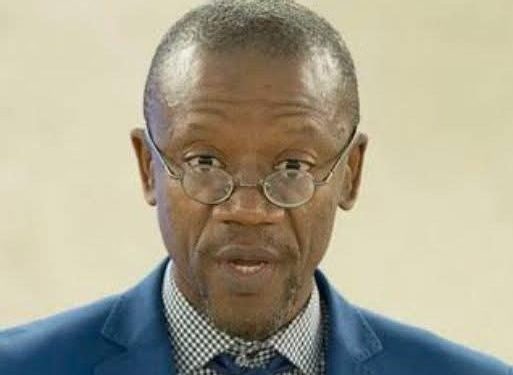By Mohamed Gibril Sesay
Let me start with a simple observation: politics in Sierra Leone is rarely black and white. The EJ issue is no exception. It sits in the middle of a web of grievances, personal calculations, and broader questions of party legitimacy. To reduce it to “pro-Samura” versus “anti-Samura” misses the diversity of motivations driving those who have rallied around EJ.
There are, first, the very few who are in it strictly for money or personal gain. Another small group joins EJ as a way of frustrating APC’s chances in 2028. Then there are those whose longstanding animus against EBK makes EJ a convenient stick to hit him with.
But beyond these small clusters, the real weight of EJ comes from two much broader sources. One is those who feel politically stranded after tying their relevance to Dr. Samura; EJ offers them renewed visibility. The other, by far the majority, are those who genuinely believe APC won the 2023 elections, or at least that SLPP did not win outright. For them, EJ represents both anger at lost victory and impatience with the long wait until 2028. Many also buy into the idea that the international community holds the key to undoing what they see as injustice.
At root, most APC members share EJ’s basic conviction: that the party was denied victory, and that the current government stands on shaky legitimacy. Where the fault line emerges is strategy. EJ insists Dr Samura should be president now, backed by international intervention. Many in the wider APC once leaned that way, but grew disillusioned with Dr Samura’s hesitance about leading a robust resistance immediately after the elections. For them, the moment passed; now it’s about organizing for 2028.
Here lies the strategic dilemma. EJ thrives in the space between grievance and pragmatism. Left unchecked, it fractures the party, fuels false hope, and shifts responsibility and blame..
And then there is the EJ blame game. Those who cling to EJ often accuse others, especially those who served on the Tripartite Committee, of betrayal. Yet many of these “betrayers” had in fact urged stronger action right after the elections, while the current EJ hardliners pressed for reliance on the international community to “do the job.” Now the roles are reversed: those who once argued for patience cry betrayal, while those who wanted urgency are branded sellouts.
This whiff of betrayal has ripple effects. It scares off many, including would-be FBs, from openly confronting EJ. Afraid of angering a sizable number of APC supporters, or being the butt of cusses on social media, and being knocked out of the race, they adopt a cautious “softie softie” stance. Outwardly avoiding, some are are boiling inside, but fear silences them. The result is a politics of hesitation – no robust stance against SLPP, no frank engagement with EJ, just avoidance. That is a dangerous cocktail for a party preparing for 2028.
Meanwhile, the SLPP government seems content to let EJ simmer, but only at the level of talk, not action. At that level, EJ seems politically useful to them. Its endless internal finger-pointing weakens APC’s unity and reduces its threat to SLPP. This dynamic, in turn, frustrates some APC members so deeply that they call on the same government to clamp down on EJ. But that would only worsen the pain already inflicted on APC supporters, while giving SLPP a freer hand to frame itself as tolerant. Fact is, this SLPP is not on the side on any APC person, or faction. It is on its own side, full stop.
So where could this EJ dynamics lead? Three futures are possible. One scenario is dissipation: quiet diplomacy, patient dialogue, and the natural fatigue of political struggles thin EJ’s ranks over time. By mid-2026, it has shrunk into a loud minority on social media, while most APC members channel their energy into a united 2028 push.
Another possibility is entrenchment: EJ refuses to die down, instead feeding on grassroots frustration and diaspora backing. It hardens into a parallel voice within APC, constantly questioning leadership of whosoever emerges as FB. If left unchecked, by 2027 the party heads into elections with internal fractures that weaken its credibility and coherence.
But there is also a third path: transformation. Here, APC leadership chooses to harness EJ’s energy rather than fight it. The grievances that fuel EJ are acknowledged and given political expression through roles in shaping the party’s agenda. Instead of being a source of division, EJ becomes a catalyst for renewal, energizing the party’s claim to represent the people.
EJ is not an external threat to APC; it is an internal signal. It tells the party where the frustrations lie, where trust was broken, and where renewal is needed. The choice before APC leadership is not whether EJ exists, but what to do with it.
To wish it away is naïve. To wish SLPP to repress it is destructive. The only viable path is to engage it, classify its motivations, and redirect its energies into strengthening the party. That means offering relevance to those who feel sidelined, educating those who cling to international illusions, and giving genuine believers a concrete project toward 2028.
If APC can transform EJ into a force for renewal, it enters electoral battle united, confident, and credible. If it fails, it risks being weakened into a force that could not, like in 2023, protect its own claim of victory.













